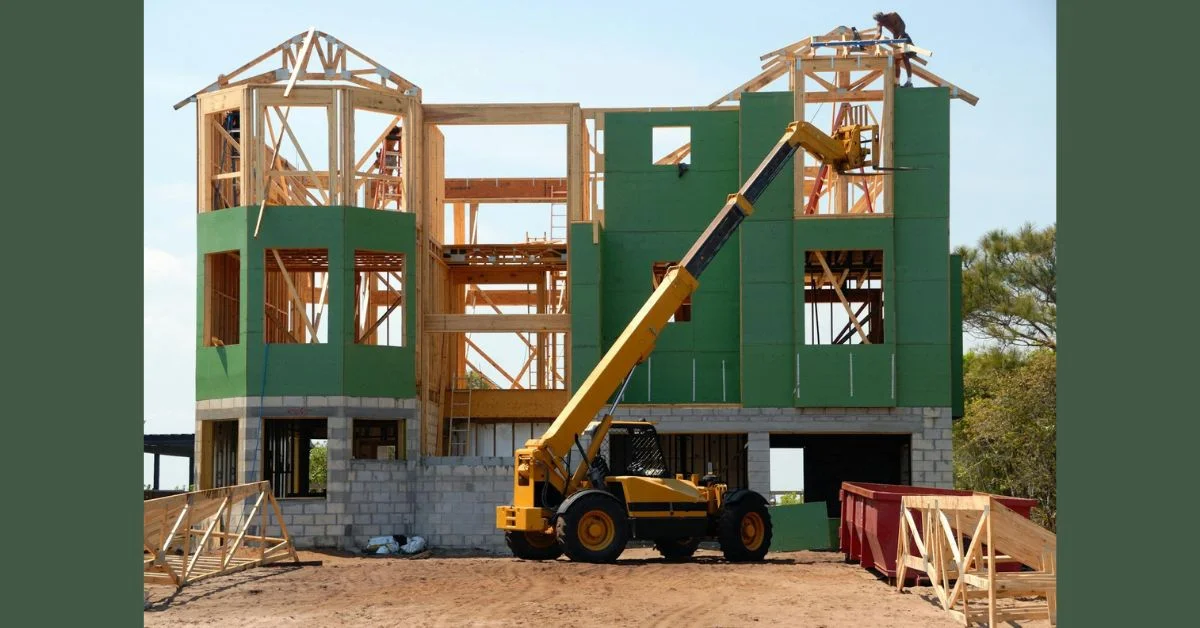REAL ESTATE
Understanding the Buyer’s Market vs. Seller’s Market with Your Agent

In the dynamic world of real estate, understanding market conditions is crucial for both buyers and sellers. This knowledge can significantly impact your strategy, negotiations, and ultimately, the success of your transactions. A pivotal aspect of this understanding is distinguishing between a buyer’s market and a seller’s market. Working with a knowledgeable real estate agent, especially one who has taken comprehensive real estate agent classes in New York and holds a New York real estate license, can provide invaluable insights and advantages in navigating these markets.
What is a Buyer’s Market?
A buyer’s market occurs when there are more homes for sale than there are buyers. In such markets, buyers have the upper hand due to the high inventory of properties, which typically results in lower prices and more negotiating power. Homes may stay on the market longer, and sellers may find themselves making concessions to close deals, such as paying for repairs, closing costs, or offering flexible move-in dates.
For buyers, this market presents a unique opportunity to get a better deal on a home. Buyers can afford to be choosier, negotiate harder, and take their time in making decisions. However, buyers should also be strategic; while it might be tempting to make lowball offers, doing so in a nuanced way is essential to avoid alienating sellers.
What is a Seller’s Market?
Conversely, a seller’s market is characterized by fewer homes for sale than there are buyers looking to purchase them. This scarcity leads to higher home prices and often results in bidding wars among prospective buyers. In a seller’s market, homes sell faster, and sellers have the upper hand in negotiations, able to dictate more stringent terms and even reject offers that might seem perfectly reasonable under different market conditions.
For sellers, this market means potentially selling their home for more than the asking price, with minimal concessions and faster closing times. However, even in a seller’s market, it’s crucial for sellers to remain realistic about pricing and the condition of their home, as overpricing and neglecting necessary repairs can still deter potential buyers.
The Role of a Real Estate Agent
Whether you find yourself in a buyer’s market or a seller’s market, the expertise of a qualified real estate agent is indispensable. Agents who have completed real estate agent classes in New York and obtained a New York real estate license bring a wealth of knowledge and resources. They understand local market conditions and trends, and can provide tailored advice to help you make informed decisions.
For Buyers:
In a buyer’s market, an agent can help you identify undervalued properties and negotiate deals that might include concessions from the seller. They can also guide you through the home inspection process and suggest strategic offers that maximize value without offending the seller.
For Sellers:
In a seller’s market, your agent can help you price your home competitively to attract a wide range of buyers. They can also manage multiple offers to ensure that you not only get the best price but also choose buyers with the best chances of closing without issues. Moreover, they can assist in staging your home to appeal to potential buyers, enhancing its best features and minimizing its flaws.
Conclusion
The decision to buy or sell a home is a significant one, and the market conditions under which you make this decision can greatly affect the outcome. Recognizing whether you are in a buyer’s or seller’s market is key to aligning your strategies accordingly. Collaborating with a skilled real estate agent, particularly one well-versed in the nuances of New York’s real estate market, can substantially ease the process. They are not just facilitators but are strategic partners equipped with the insights and expertise necessary to navigate complex market dynamics successfully. Remember, whether it’s timing the market or understanding local trends, a professional with a New York real estate license and the right training from real estate agent classes in New York can be your greatest asset in real estate transactions.
REAL ESTATE
The Power of Assurance: How Performance Bonds Benefit Contractors and Clients?

In the world of construction, trust is paramount. Contractors and clients seek assurance that projects will be completed satisfactorily, on time, and within budget. This assurance is where a performance bond comes into play. These bonds offer security for both parties involved in a construction project, ensuring that contractual obligations are fulfilled. Understanding their significance is crucial for anyone engaged in the construction industry.
A Safety Net for Project Success:
It is a three-way agreement between a client (the obligee), a contractor (the principal), and a surety company. The surety company issues the bond, providing the client with financial compensation if the contractor does not fulfill the project requirements outlined in the contract. This includes meeting deadlines, adhering to quality standards, and staying within the agreed-upon budget.
Think of this as a safety net. If the contractor encounters unforeseen circumstances that prevent them from fulfilling their contractual obligations, the client has recourse. They can file a claim against the bond, and the surety firm will step in to cover the costs of completing the project or compensate the client for any damages incurred.
Benefits for Clients:
It offers clients a significant layer of security and peace of mind. Here’s how:
Financial Protection: The biggest advantage is undoubtedly financial protection. If a contractor defaults on their obligations, the client may bear the expenses associated with rectifying substandard work, engaging a new contractor to finalize the project, or managing any resulting delays. The surety company assumes that financial burden.
Reduced Risk: These bonds eliminate the risk associated with contractor insolvency or unforeseen circumstances. Even reputable contractors can face challenges, and a bond ensures the project is completed.
Improved Quality: Knowing that their performance is guaranteed financially incentivizes contractors to deliver high-quality work. The prospect of a claim against the bond motivates them to adhere to strict quality standards throughout the project.
Stronger Bidding Process: By requiring this bond, clients attract more qualified and experienced contractors who are confident in their ability to deliver. This fosters a more competitive bidding process, potentially leading to better pricing and project outcomes.
Benefits for Contractors:
These aren’t just beneficial for clients. Contractors can leverage them to:
Demonstrate Credibility: Obtaining a bond signifies financial stability and a commitment to ethical business practices. This strengthens a contractor’s reputation and gives them a competitive edge when bidding on projects.
Access Larger Projects: Many large-scale projects mandate these bonds as a prerequisite for bidding. Having a bond allows contractors to compete for these lucrative opportunities and expand their business reach.
Build Stronger Client Relationships: It displays a contractor’s determination to complete projects on schedule and under budget. This fosters trust and strengthens client relationships, leading to repeat business and positive word-of-mouth recommendations.
Peace of Mind: It also offers a sense of security for contractors. Knowing that the client has financial recourse in case of unforeseen delays or complications can ease anxieties and allow them to focus on delivering quality work.
Considerations and Costs:
While these bonds offer undeniable advantages, there are a few things to consider:
Cost: The cost varies depending on the project size, complexity, and the contractor’s financial history. Typically, it ranges from 1% to 3% of the total contract value.
Selection Process: The surety company must thoroughly evaluate the contractors before securing this bond. Contractors must submit financial statements, project plans, and references to demonstrate their ability to fulfill the contract.
Claim Process: In the event of a claim, the surety company will investigate the situation thoroughly before compensating the client. Open communication and clear documentation are crucial for a smooth claims process.
Summing it Up:
A performance bond is vital in fostering trust and mitigating risk in the construction industry. They offer peace of mind to clients and contractors, ultimately contributing to the successful completion of projects. By understanding the benefits and considerations involved, clients seeking reliable contractors and contractors looking to expand their business opportunities can leverage the power of these bonds to achieve their goals.
REAL ESTATE
Ten Essential Considerations for Constructing an Office Building

When embarking on the construction of a new office building, business owners and developers face a unique set of challenges distinct from residential projects. This article delves into the critical factors to consider during commercial construction, highlighting the differences between commercial and residential builds. It also underscores the importance of a well-constructed commercial building, which not only enhances operational efficiency but also projects a positive image to clients and employees.
Understanding Zoning Laws and Building Codes
One of the first steps in commercial construction is to understand and comply with local zoning laws and building codes. These regulations are foundational to determining where an office building can be constructed, the types of businesses that can operate within it, and specific requirements regarding structure size, parking facilities, and utility placements. Early consultation with city planning and zoning departments can provide guidance and prevent costly mistakes or delays. Ensuring that your building plans are in compliance from the start can facilitate a smoother construction process and avoid legal complications.
Choosing the Right Construction Company
The selection of a construction company is crucial and can significantly impact the project’s overall success. It’s important to choose a contractor with extensive experience in commercial projects similar to yours. Evaluate potential commercial building contractors based on their past project successes, financial stability, and the quality of their construction work. Conducting interviews and reviewing client testimonials can provide further insight into their reliability and the quality of relationships they maintain with their clients. The right construction company will not only deliver high-quality workmanship but will also keep the project on schedule and within budget.
Budget Planning and Management
Effective budget planning and management are key to avoiding financial overruns and ensuring the economic feasibility of the construction project. Start by outlining a detailed budget that includes all potential costs—from architectural design fees and construction materials to labor costs and interior finishes. Setting aside a contingency fund is also highly recommended (this should be nearly 10-20% of the total budget) to cover unexpected expenses that arise during construction. Regularly reviewing and managing the budget throughout the project can help keep expenditures in check and ensure financial targets are met.
Sustainable Building Practices
Sustainable construction has become a critical consideration in building office spaces that are environmentally responsible and cost-efficient over time. Implementing sustainable practices, such as using recycled materials, installing energy-efficient windows and HVAC systems, and integrating renewable energy sources like solar panels, can significantly reduce the building’s carbon footprint and operational costs. Additionally, these practices can make the building more attractive to potential tenants who are increasingly aware of environmental issues and their social responsibility to address them.
Technology Integration
Today’s office buildings need to accommodate the technological needs of modern businesses. This includes high-speed internet capabilities, advanced telecommunications wiring, and smart technologies that allow for automated building operations. Integrating these technologies during the construction phase is more cost-effective and less disruptive than having them installed later. Additionally, technology integration can enhance building security and efficiency, providing a safe and productive environment for all tenants.
Accessibility
Ensuring that an office building is accessible to everyone, including people with disabilities, is not only a legal requirement but also a moral and practical necessity. Designing with accessibility in mind involves installing ramps, elevators, and accessible restrooms, as well as ensuring that doorways and hallways accommodate wheelchairs. These features make the building welcoming and usable for a diverse range of tenants and visitors, which can enhance the building’s marketability and ensure compliance with the Americans with Disabilities Act (ADA). Furthermore, accessible design promotes inclusivity and can significantly improve the quality of life for individuals with disabilities.
Aesthetics and Design
The architectural design of an office building plays a crucial role in defining its character and appeal. A well-designed office not only provides a productive environment for employees but also helps in branding for the businesses housed within. Architects and designers must, therefore, balance functionality with creative design elements to make the space inviting and stimulating. This could involve choosing modern exterior elements, incorporating natural light, and selecting building materials that are both durable and visually appealing. The aesthetic appeal of an office building can serve as a physical representation of the companies it hosts, potentially attracting more tenants and enhancing the building’s value.
Contractor and Supplier Relationships
Strong, reliable relationships with contractors and suppliers are essential for the timely and successful completion of an office building. These relationships can lead to cost savings, better quality materials, and efficient resolution of issues that arise during the construction process. Effective project managers will regularly communicate with suppliers and contractors, ensure contracts are clear and detailed, and manage these relationships to maintain project timelines and budget constraints. Building trust and mutual respect with all parties involved can contribute to a smoother construction process and better overall results.
Safety Measures
Safety is paramount in the construction of any building. Adhering to safety standards and regulations is essential to protect workers and future occupants. This includes implementing proper training for all personnel, using the right tools and equipment, and regularly conducting safety audits and inspections. Compliance with Occupational Safety and Health Administration (OSHA) guidelines not only helps prevent accidents but also mitigates legal risks and ensures the construction proceeds without costly interruptions. A focus on safety demonstrates a commitment to workforce welfare and corporate responsibility.
Future Flexibility
As the needs of businesses evolve, so should the spaces they occupy. Designing an office building with flexibility in mind allows for adjustments to be made as tenant needs change. This might include modular offices, movable walls, and adaptable common areas that can be reconfigured as needed. Flexibility can also extend to technological upgrades and energy systems that can be easily updated as innovations emerge. A flexible building design can make the property more appealing to potential tenants who are looking for spaces that can grow and change with their businesses.
Conclusion
Constructing an office building involves careful consideration of multiple factors that influence its success and sustainability. From selecting the right construction company to incorporating flexibility in design, each aspect plays a significant role in the overall outcome of the project. By addressing these ten critical areas, developers can ensure that their office building meets current needs and anticipates future trends, making it a valuable asset in the commercial real estate market.
REAL ESTATE
Investing in Dubai Real Estate: Why Off-Plan Properties in Dubai Continue to Attract Global Capital

You are not late for Dubai. You are early if you know where to look. Global investors are not chasing hype here. They are chasing structure, regulation, and timing. That is why investing in Dubai real estate, especially off-plan projects, continues to attract capital from Europe, the UK, and Asia.
Dubai does not sell dreams. It sells math. Fixed entry prices. Regulated escrow accounts. Predictable delivery cycles. For a first-time buyer, that clarity matters more than glossy brochures.
Why Off-Plan Properties in Dubai Make Financial Sense
Buying off-plan property in Dubai works for one reason. You lock today’s price while the city builds tomorrow’s value. Developers release units at below-market rates to fund construction. You benefit from that gap.
Payment plans stretch over several years. Many off-plan projects in Dubai require only 10 to 20 percent upfront. The rest is spread across construction milestones. Some extend even after handover. This lowers your cash exposure and increases flexibility.
Rental demand does the rest. Dubai’s population keeps growing. Apartments for sale in Dubai near business hubs and transport corridors rarely sit empty. Investors targeting dubai property investment often see rental yields between 6 and 8 percent when projects are completed. Appreciation comes on top if you bought well.
Investor Protection and DLD Regulations You Must Understand
Here is the part most brokers skip. Safety. Dubai Land Department regulations control every off-plan sale. Developers must register projects. Funds go into escrow. Money cannot be touched unless construction milestones are met.
You get a registered sales contract. Your ownership is recorded. Title deeds are issued upon completion. This is why serious investors buy property in Dubai rather than gamble in unregulated markets.
Transparency is not optional here. It is enforced. That is why real estate investment in UAE attracts institutional and private capital year after year.
Where Smart Buyers Focus Today
Not all properties in Dubai for sale are equal. Honestly, some should be avoided. Smart buyers focus on master-planned communities, infrastructure-backed zones, and developers with a proven track record of delivery.
Off-plan villas in Dubai near schools and transport outperform speculative towers. Apartments in mixed-use districts have stronger rental demand. Luxury properties in Dubai attract end-users, not just flippers. That stability matters when markets shift.
How First-Time Investors Should Approach the Market
Start with clarity. Budget. Timeline. Exit plan. Then shortlist off-plan projects in Dubai that match those numbers. Do not buy because a showroom feels impressive. Buy because the yield works and the developer delivers.
This is where guidance matters. At Professor Property, deals are structured, not pushed. We review contracts, explain DLD fees, and filter projects before you commit capital. That discipline protects returns and sleep.
Dubai rewards prepared investors. If you want to buy off-plan property in Dubai with logic instead of noise, start with the numbers. Then take the next step.
Visit Professor Property for clear guidance, vetted projects, and a strategy built around your goals. Smart capital always follows structure.

 BUSINESS1 year ago
BUSINESS1 year agoExploring the Benefits of Commercial Printing

 HOME IMPROVEMENT12 months ago
HOME IMPROVEMENT12 months agoThe Do’s and Don’ts of Renting Rubbish Bins for Your Next Renovation

 BUSINESS12 months ago
BUSINESS12 months agoBrand Visibility with Imprint Now and Custom Poly Mailers

 HEALTH8 months ago
HEALTH8 months agoThe Surprising Benefits of Weight Loss Peptides You Need to Know

 TECHNOLOGY10 months ago
TECHNOLOGY10 months agoDizipal 608: The Tech Revolution Redefined

 HEALTH7 months ago
HEALTH7 months agoYour Guide to Shedding Pounds in the Digital Age

 HOME IMPROVEMENT7 months ago
HOME IMPROVEMENT7 months agoGet Your Grout to Gleam With These Easy-To-Follow Tips

 HEALTH11 months ago
HEALTH11 months agoHappy Hippo Kratom Reviews: Read Before You Buy!












